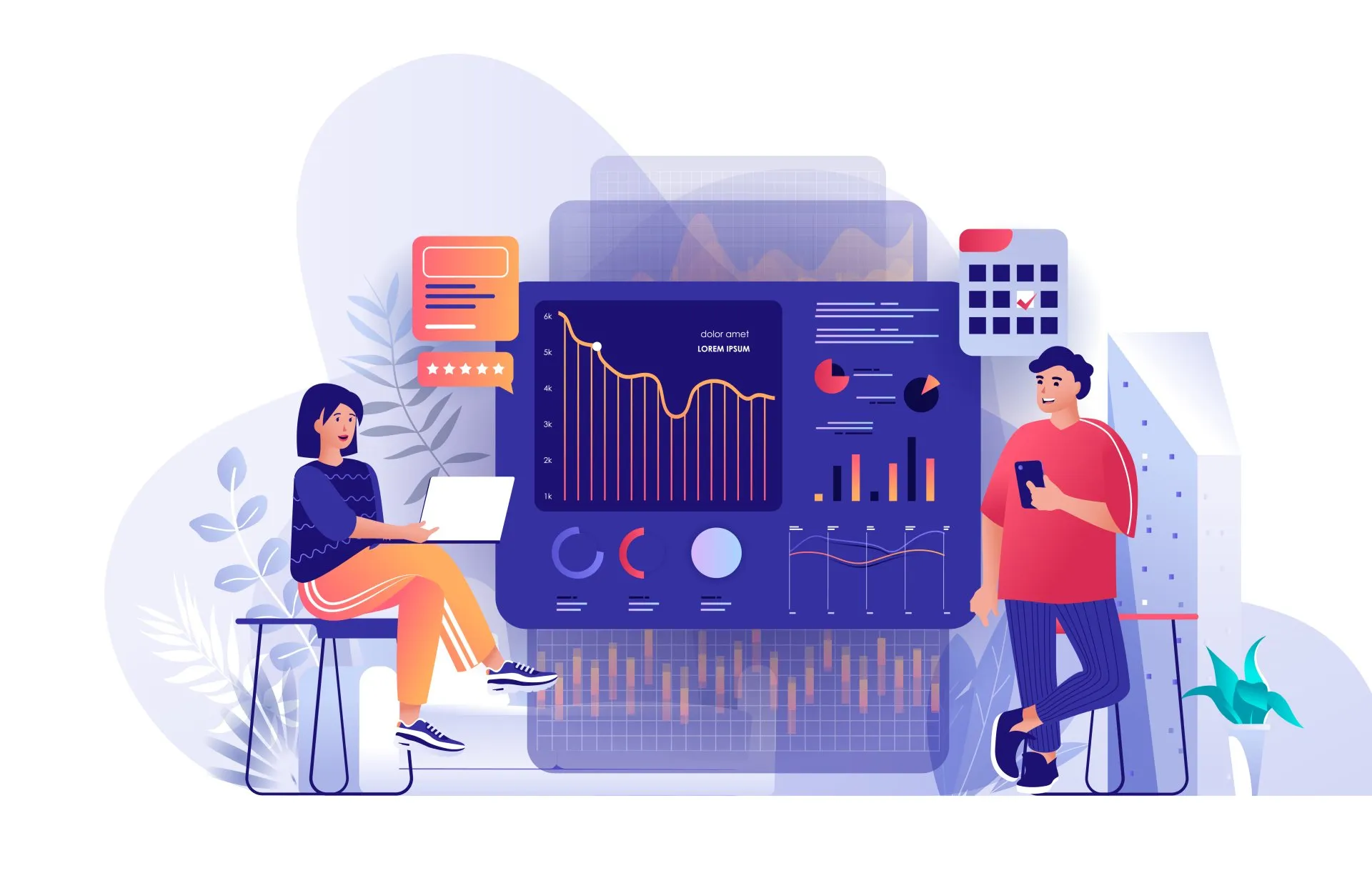Today, customers engage with businesses through social media, email, and online ads using various devices like smartphones, smartwatches, and other wearables. These new technologies are designed to make communication and things like online shopping more convenient, but unfortunately for advertisers, this causes data to become more fragmented. This creates data challenges in digital marketing operations; teams can no longer easily integrate and evaluate consumer data, create highly targeted marketing campaigns, and adjust their strategies in real-time. And when you’re creating multichannel campaigns or building rich customer profiles, the struggle gets even harder for marketers.
How Customer Data Platforms help marketers
The CDP Institute defines Customer Data Platforms as “packaged software that creates a persistent, unified customer database that is accessible to other systems. Furthermore, Customer Data Platforms (CDPs) help marketing teams manage customer data and provide deeper and more granular analytics and actionable insights that go beyond the limitations of their existing technologies. It’s a unified database that stores data from online and offline sources and creates a single profile for every customer, breaking down data silos and making data sharable across multiple departments.
It is a technology used to unify customer data across marketing, sales, and customer support. It enables organizations to leverage data to build customer models and optimize marketing campaigns. CDPs help improve data usage and governance while maintaining high-quality data.
Build engaging customer experiences with data insights
A Customer Data Platform enables you to track first-party and third-party data across all your marketing channels and is essential to your omnichannel strategies. It unifies data from various sources and stores it in one place where it can be made accessible to multiple teams across your organization. The CDP will collect qualitative and quantitative data and effectively present the data in reports that can be used to take actionable insights and be shared with other team members.
It allows companies to track individual-level data and gain transparency into valuable insights like customer buying patterns and preferences. Behavioral and identifier data types like browsers, device IDs, demographics, page visits, session types, and spending patterns can be collected and used for audience targeting and personalization.
A unified customer profile
You can consolidate personally identifiable information retrieved from multiple data sources and transform it into a single customer profile using a CDP. Customer interactions collected from sales, marketing, and support teams can enable ecommerce brands to build highly personalized profiles and link different devices to a single individual. It can improve data accuracy by digitally identifying attributes and reconciling customer records like mobile numbers, email addresses making your data analysis more reliable.
Enhance the value of your data and improve quality
Having the ability to collect data at a granular level is critical for marketing teams. Still, it can present a challenge as the large amounts of the data collected are often of poor quality. High-quality data leads to better marketing decisions; it’s been reported that more than 70% of organizations rely on data to drive their future business decisions. Customer data platforms can verify and cleanse data like false phone numbers and fake names in real-time, keeping your data high quality and trusted by your team.
Audience segmentation increases conversions.
Personalized campaigns are imperative for driving new business. And, CDPs can help you create accurate customer segments and build more precise RFM (recency, frequency, monetary) models allowing marketers to predict the future behavior of customers and maximize advertising efforts. With a more segmented customer database, marketers can personalize messages and target the right user at the right time, thus, creating a more engaging customer journey that leads to higher conversion rates and builds loyalty. High-quality data is crucial to keeping up with emerging marketing channels and the constantly changing patterns of your customers. A CDP will help your team seamlessly manage and analyze new data points to improve customers’ digital experiences and turn customers into repeat buyers. Leveraging a CDP can help brands adapt to shifts in the market and stay on top of trends.
Test new marketing strategies
Marketers can test different products and messages across any marketing channel and integrate data from known and unknown sources for online or offline touchpoints giving brands a complete 360-degree view of the customer’s journey. The CDP collects, consolidates, and simplifies the experimentation process by cleansing, time-stamping, and tagging relevant data. Now, you can better optimize your advertising dollars and attribute value to the proper channels.
In conclusion
There’s no double that Customer Data Platforms eliminate data challenges for teams across the board by acting as an extension of other tools and systems that currently exist within your organization. People are constantly switching from channel to channel and how we engage is different on each one. However, the demand for frictionless and seamless interactions remains the same. Companies will need to shift to first-party data strategies with the rising privacy concerns and elimination of third-party cookies. Brands will need to rely on the customer data they collect with user consent.
Customer data platforms like LayerFive help companies unify their data, gain deeper insights, and stay compliant with privacy regulations. Contact us here to schedule a demo and explore how you can benefit from a CDP platform.



